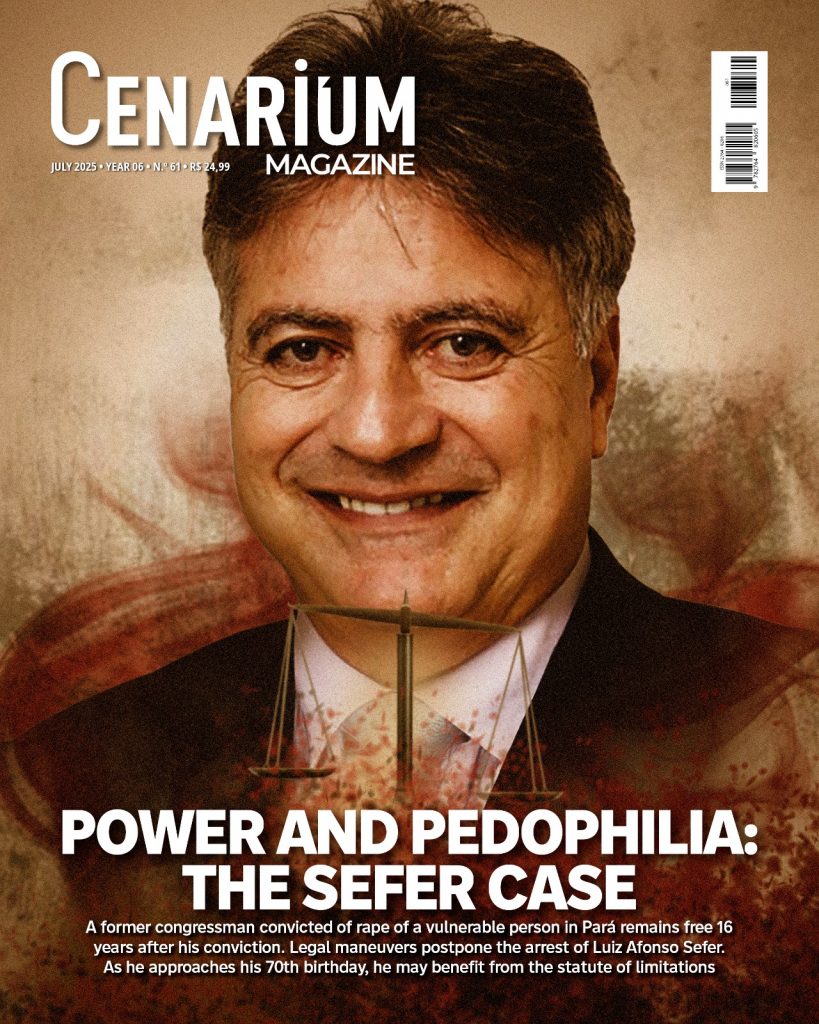EDITORIAL – The Sefer Case: a system of impunity
14 de August de 2025

By Paula Litaiff – From Cenarium
In Belém, Pará, a 9-year-old girl was stripped of her childhood and subjected to four years of repeated sexual abuse at the hands of a powerful politician: former deputy Luiz Afonso Sefer. Sixteen years after being convicted, a sentence upheld by Brazil’s Superior Court of Justice, Sefer remains free. Not because he was proven innocent, but because he was protected: by a slow-moving legal system, by procedural loopholes, and by the shielding embrace of political privilege.
This is not an isolated failure. It is a portrait of a justice system that consistently bows to power. It is a system that forgets the victim, delays the process, and ultimately revictimizes those most in need of protection.
As early as 1995, scholars Bontempo, Bosetti, César, and Leal warned that “sexual violence against girls and adolescents is a deliberate act of domination, enabled by a social structure that normalizes abuse as an exercise of male power.” That warning echoes today, louder than ever, in the deeply detailed investigation by João Paulo Guimarães, featured in this issue of CENARIUM MAGAZINE. The Sefer case exposes more than a man—it exposes a network. One that protects the aggressor, buries the crime, and leaves the survivor behind.
What kind of justice allows this? One that is patriarchal, elitist, and colonial at its core. In Brazil, the majority of rape victims are poor, Black girls from the outskirts of society. According to the 2024 Brazilian Yearbook of Public Security, 61% of reported rapes target girls between the ages of 10 and 13. And Sefer? He remains backed by the political elite of Pará. His allies sign million-dollar contracts. Their families sit in the judiciary. A well-oiled machine of influence ensures his protection.
How can we speak of democracy when silence is rewarded and justice is optional for the powerful? The Sefer case is not only a wound in Pará’s history—it is a stain on Brazil’s soul. It demands collective outrage. It demands a society that refuses to look away. It demands that the voice of that 9-year-old girl be heard—and remembered—not as a footnote, but as a call to action.
Because child rape is not charity. It is not forgivable. And it must never, ever be negotiable.
The subject was the cover story and journalistic special of the new edition of CENARIUM MAGAZINE. Click here to read the full content.


